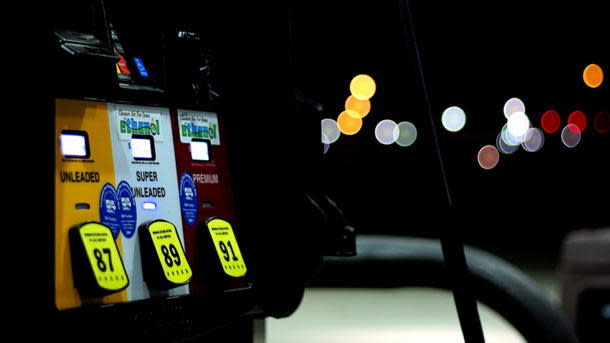 Motoramic
MotoramicAutomakers warn U.S. drivers more ethanol could cost them $4,000 each in repairs
Lobbyists for 25 of the world's major automakers warned U.S. drivers today that a new study shows millions of older vehicles could be at risk of thousands of dollars in damage due to rising amounts of ethanol in the nation's gasoline. That warning drew an immediate rebuke from ethanol backers, who said the study was bunk and an attempt by oil companies to snuff competition.
The push from the auto industry -- including every company that sells cars and trucks in the Untied States -- marks an escalation over the fuel several companies once touted as a boon for the environment and energy independence. Ethanol attracts water more than gasoline, and can corrode or degrade metals and rubber parts not designed to withstand it, but this study marks the first piece of solid evidence from the industry that even a small increase from the 10 percent ethanol mixed in most U.S. gasoline could damage vehicles.
"Many vehicles on the road today are at risk of harm from E15," said Mitch Bainwol, president and chief executive of Auto Alliance, the lobbying group that includes Detroit automakers and Toyota. "The unknowns concern us greatly, since only a fraction of vehicles have been tested to determine their tolerance to E15,"
It's not easy to sum up decades of political maneuvering, boardroom brawling and environmental grappling in a few words, but here goes: After Congress passed laws in 2005 and 2007 requiring a huge boom in how much ethanol American drivers use, the plan quickly went haywire. Total fuel consumption dropped due to more efficient vehicles, and there weren't enough pumps selling fuel made from 85 percent ethanol, nor enough cars and trucks that could burn E85, to even come close to the targets written into law.
Faced with slack demand and abundant supply, the ethanol industry pressed the U.S. Environmental Protection Agency to let a little more ethanol slip into the regular gasoline sold across the country -- up to 15 percent, from the old maximum of 10 percent. Automakers led dozens of industries in objecting, arguing they'd built engines and set warranties for decades based on a maximum of 10 percent ethanol in gasoline. The EPA ordered dozens of tests, and after finding little damage approved in 2010 E15 for use in cars built after 2001, with the first E15 fuel expected later this year.

 Yahoo Autos
Yahoo Autos 

